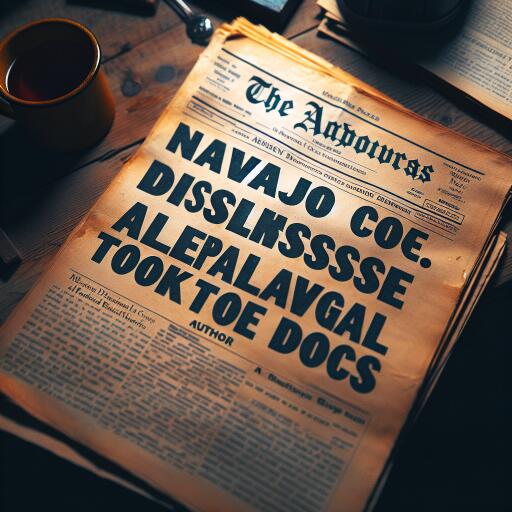Navajo Co. Dismisses Case Relating to Paralegal Document Dispute
In a recent development involving a natural resources firm under the umbrella of the Navajo Nation, a legal complaint against a former paralegal has been formally retracted. The company had previously claimed that the paralegal neglected to surrender her computer for the deletion of sensitive documents belonging to the firm.
The dismissal follows the paralegal’s assertion that she had proactively organized the return of her device well before any legal action was initiated. This turn of events highlights the intricate dance between legality and logistics in contemporary corporate settings, where document management and privacy remain essential considerations.
Background of the Case
At the heart of this case was a contention that a paralegal had not complied with company protocol regarding the handling of electronic devices that contain privileged information. Such procedures are customary in sectors dealing with sensitive and proprietary data to prevent unauthorized access or leaks.
The company had contended that crucial privileged documents had not been adequately secured following the termination of her employment, thereby raising concerns over potential data breaches. Legal actions were then pursued as a precautionary measure to prevent any possible dissemination of sensitive data.
Resolution Achieved
The resolution of the case came unexpectedly when the paralegal presented evidence of her efforts to coordinate the handover of her device prior to any lawsuit being filed. Her proactive engagement underscored the importance of clear communication and documentation when handling such disputes. The company’s decision to drop the lawsuit was largely influenced by these revelations, leading to an amicable resolution.
Implications for Future Practices
This incident serves as a crucial lesson for organizations and workers alike in managing electronic devices and sensitive documents. For firms, it emphasizes the necessity for well-documented protocols and communication channels to ensure smooth transitions when an employee exits. Equally important is the readiness of employees to abide by contractual obligations regarding company assets and information.
Moreover, this case underlines the increasing significance of clear and effective data management strategies in our digital age, where the risk of unauthorized information leaks is ever-present. Properly establishing these strategies can prevent procedural misunderstandings and avert expensive legal entanglements.
Conclusion
By resolving this legal challenge calmly, the Navajo-owned enterprise has set a precedent encouraging cooperative dispute resolution over contentious legal battles. Such outcomes promote stronger trust in employee-employer relationships and facilitate a more transparent and efficient legal process.
The complete dissolution of the case not only serves the rights of both parties involved but also acts as a guiding example of how timely communication and compliance with procedure can effectively conclude disputes that could otherwise result in costly legal endeavors.









